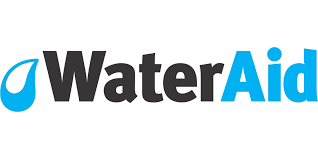By Asmau Ahmad
WaterAid Nigeria has formally launched its new five-year Country Programme Strategy, to improve access to basic water and sanitation services for 17 million Nigerians.
At the event in Abuja, the organisation’s Country Director, Ms Evelyn Mere, said the strategy was crucial to ensure that everyone had access to clean water, decent toilets and good hygiene.
According to her, WaterAid is collaborating with multiple stakeholders in addressing the Water, Sanitation and Hygiene (WASH) challenges facing Nigerians, especially the poor and the vulnerable.
She said the organisation, at the global level, recently launched a 10-year strategy.
Mere said: “This is to see that by 2032, through its work in Nigeria and other parts of the world, 400 million more people are reached with sustainable, safe water, sanitation and hygiene.
“With a population of over 200 million, we plan to have Nigeria contribute substantially to those numbers.
“Secondly, this is to ensure increased annual financing for WASH in low-and middle-income countries to the tune of $15 billion.
“We have invited you today to launch a strategy that you are part of developing. In doing this, we are further urging you to join us as we commence the journey of implementation.
“You are indispensable co-travelers in our quest to reach 10,000,000 people directly through our interventions with basic WASH services and behaviours and influence improved basic WASH access for 17 million more people.”
Mere said WaterAid Nigeria was conscious of the rapidly changing context in the world and its peculiar dynamics, hence the need to respond to emerging issues and the changing landscape around WASH.
She added that the strategy laid out the blueprint for maximising emerging opportunities through systemic change and accelerating impact over the next five years.
The country director said the commitment was to ensure that women could improve their productivity and realise their rights to a good education and live free of the risk of gender-based violence.
This, she added, would also see that high rate of maternal and infant mortality due to poor WASH became a distant memory.
Minister of Water Resources, Alhaji Suleiman Adamu, said Nigeria was strategic country in the drive to achieve the global WASH targets under SDG 6.
Adamu said; “Nigeria’s progress or otherwise in this regard will have great impact at the regional and global levels.
“Some of the most recent initiatives include the initiation of the development of a National WASH Policy for which a multi-stakeholder oversight committee has been inaugurated.
“The signing of Memoranda of Understanding for the take-off of the SchoolWASH, HealthWASH and YouthWASH Programmes in collaboration with the relevant Ministries is also one step.
“These high-level initiatives clearly demonstrate the strong political will of the Federal Government in reversing the narrative on Nigeria’s poor WASH indices and accelerating access to sustainable services.”
He said President Muhammadu Buhari’s administration had consistently ensured the implementation of policies and programmes designed to address identified sector gaps.
Adamu added: “This is to improve access to services and demonstrate Government’s commitment and prioritisation of WASH.”
The minister, represented by the Permanent Secretary, Dr Didi Walson-Jack, said that the strategy would achieve universal, sustainable and safe access to influence change and strengthen WASH resilience to climate change.
The minister added that the administration was bequeathing these initiatives as a legacy to the next administration, with the hope that it would be sustained in order to move the WASH sector in Nigeria to the next level.
The News Agency of Nigeria reports that within the last 27 years, WaterAid Nigeria has been working to ensure that Nigerians have access to clean water, decent toilets, and good hygiene.
This was being done through Systems Strengthening, Partnerships and Empowering Citizens and stakeholders in addressing the WASH challenges facing Nigerians, especially the poor and vulnerable.




